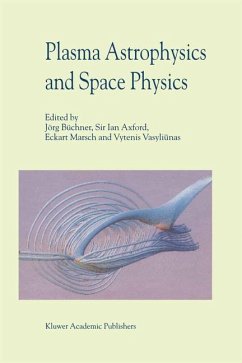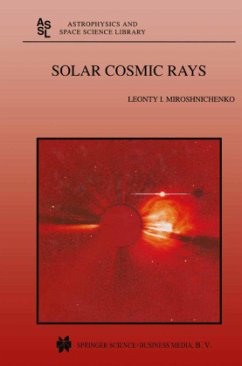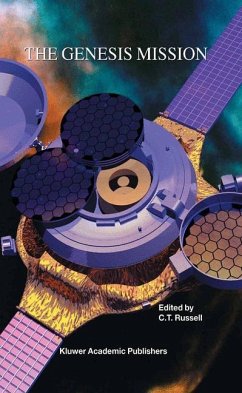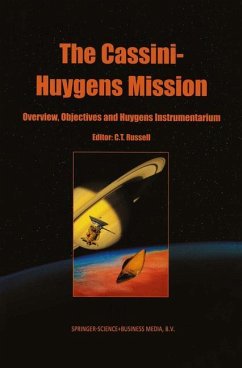
2001 Mars Odyssey
Versandkostenfrei!
Versandfertig in 1-2 Wochen
39,99 €
inkl. MwSt.

PAYBACK Punkte
20 °P sammeln!
Mars, the most habitable of our sister planets, holds a special place in our imaginations and in our space exploration program. Fully half of NASA's planetary exploration effort is now devoted to Mars. Key questions include: Has Mars ever harbored life? Is there life on Mars now? Will humans be able to survive on the Martian surface? Answers to these questions lie in determining the present location of water on Mars and its likely inventory in the past, and in determining the present radiation environment of Mars. The 2001 Mars Odyssey Mission contributes greatly these answers by detecting nea...
Mars, the most habitable of our sister planets, holds a special place in our imaginations and in our space exploration program. Fully half of NASA's planetary exploration effort is now devoted to Mars. Key questions include: Has Mars ever harbored life? Is there life on Mars now? Will humans be able to survive on the Martian surface? Answers to these questions lie in determining the present location of water on Mars and its likely inventory in the past, and in determining the present radiation environment of Mars. The 2001 Mars Odyssey Mission contributes greatly these answers by detecting near-surface water through measurements of neutron flux, from the detection of carbonates, and the quantification of its radiation environment. This book captures the objectives, the design of the mission and the details of the instruments carried to Mars. It should be of interest to every scientist interested in participating in the on-going exploration of Mars from graduate students to seniorscientists as it provides the background information essential to interpret the many exciting results now appearing from the mission.














